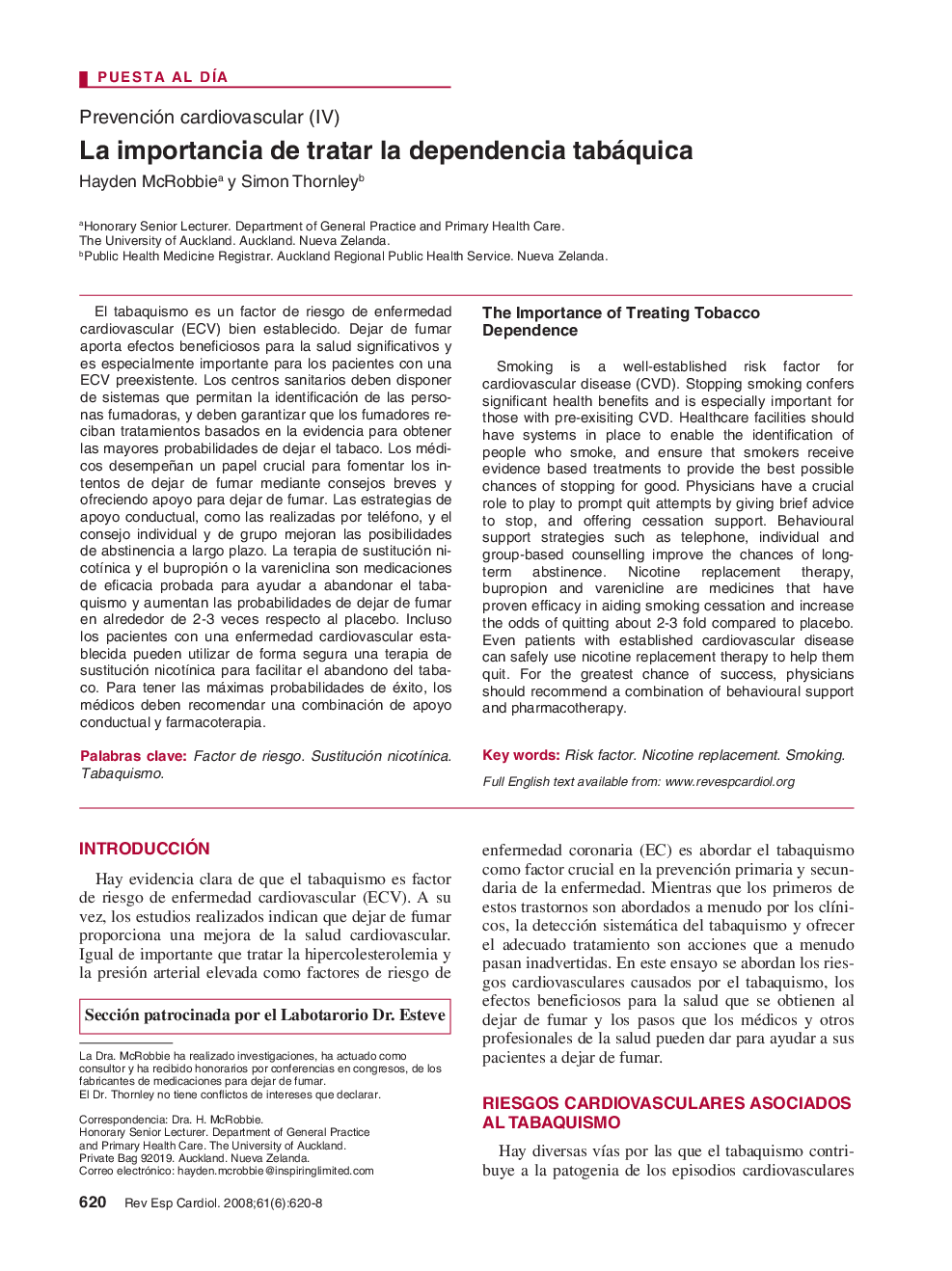| Article ID | Journal | Published Year | Pages | File Type |
|---|---|---|---|---|
| 3014807 | Revista Española de Cardiología | 2008 | 9 Pages |
Abstract
Smoking is a well-established risk factor for cardiovascular disease (CVD). Stopping smoking confers significant health benefits and is especially important for those with pre-exisiting CVD. Healthcare facilities should have systems in place to enable the identification of people who smoke, and ensure that smokers receive evidence based treatments to provide the best possible chances of stopping for good. Physicians have a crucial role to play to prompt quit attempts by giving brief advice to stop, and offering cessation support. Behavioural support strategies such as telephone, individual and group-based counselling improve the chances of longterm abstinence. Nicotine replacement therapy, bupropion and varenicline are medicines that have proven efficacy in aiding smoking cessation and increase the odds of quitting about 2-3 fold compared to placebo. Even patients with established cardiovascular disease can safely use nicotine replacement therapy to help them quit. For the greatest chance of success, physicians should recommend a combination of behavioural support and pharmacotherapy.
Related Topics
Health Sciences
Medicine and Dentistry
Cardiology and Cardiovascular Medicine
Authors
Hayden McRobbie, Simon Thornley,
